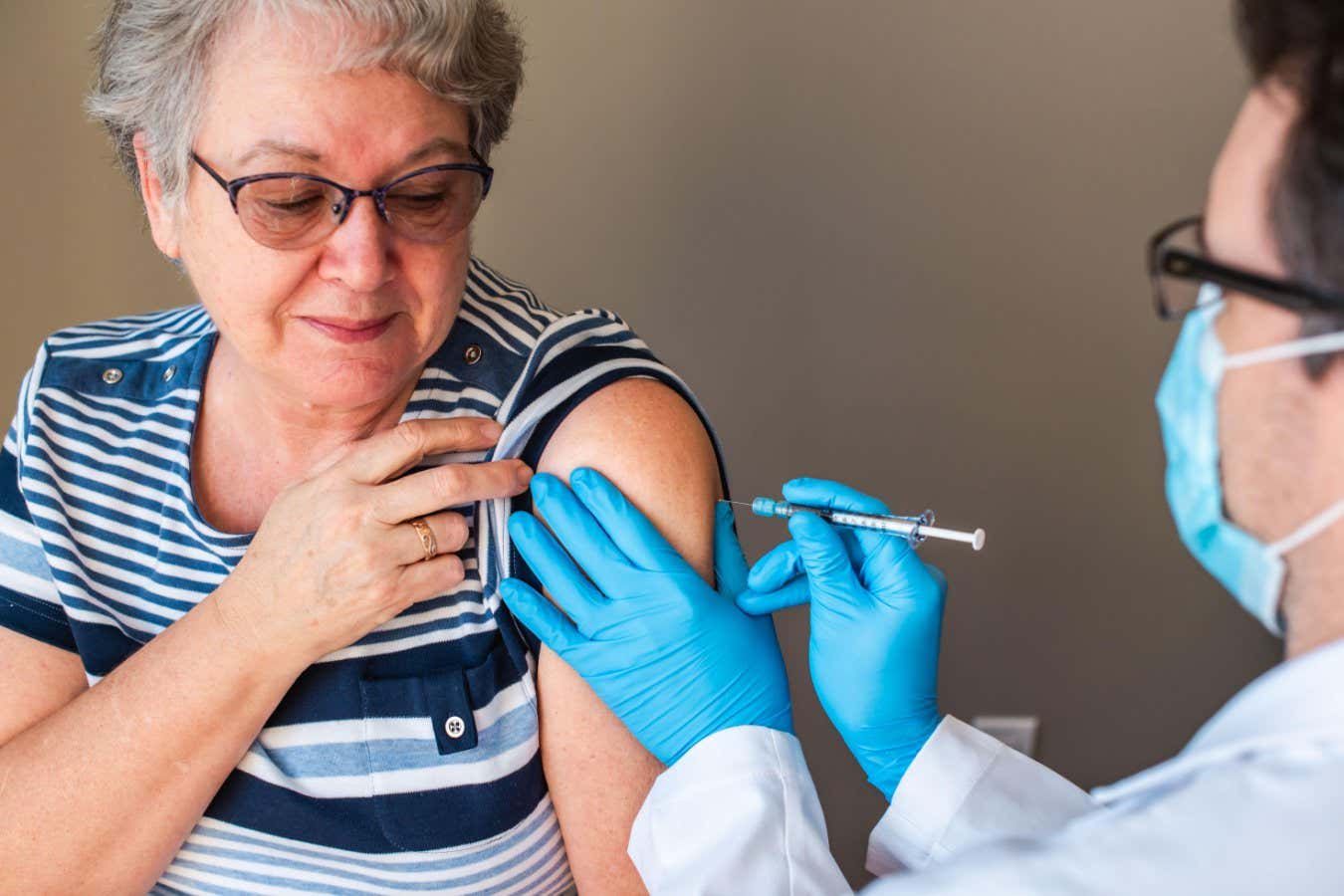Shingles is associated with an increased chance of health problems like strokes and heart attacks, but receiving a shingles jab seems to curb the risk of such cardiovascular problems
By Christa Lesté-Lasserre
6 May 2025
A shingles vaccine seems to provide additional benefits
Cavan Images/Alamy
Vaccination against herpes zoster, better known as shingles, not only helps prevent this painful infection; it also curbs the risk of cardiovascular problems.
A new observational study of more than a million people shows that those who had one injection of the shingles vaccine Zostavax were 26 per cent less likely to die from heart disease or experience a stroke, heart attack or heart failure, compared with people who hadn’t been vaccinated, says Sooji Lee at Kyung Hee University in South Korea.
Read more
The 5 best things you can do to boost the chance of a vaccine working
Advertisement
“We know shingles causes inflammation in the blood vessels,” she says. “So by preventing the infection, the vaccine may also reduce the risk of cardiovascular disease.”
Shingles occurs when the varicella-zoster virus, which causes chickenpox and then stays in the body after symptoms clear up, becomes reactivated. This can happen when the immune system is weakened, such as during periods of stress or chemotherapy. Shingles causes a painful rash, which can sometimes get infected or leave a scar.
Although cardiovascular events are not typically listed as complications of shingles, scientists now know that it is linked to a roughly 30 per cent greater risk of stroke and a 10 per cent greater risk of heart attack, especially within a year after having it.
